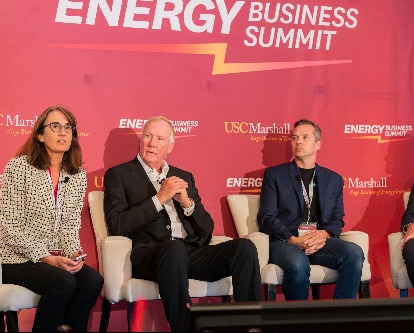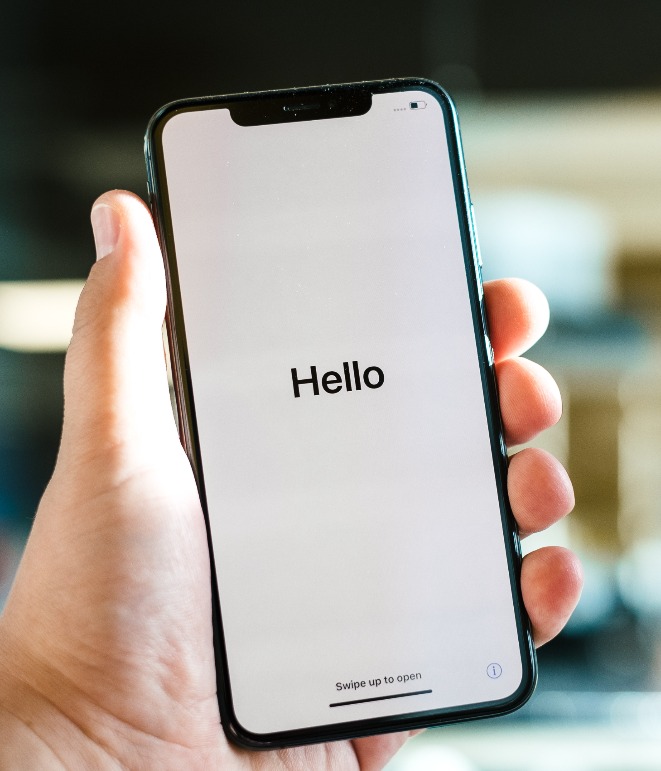
Energy Business Summit Explores Impact of AI and Shifting Policy Landscapes
From mining and metals to hydrocarbons and finance, industry leaders share insights on emerging challenges and opportunities in the energy sector.
A Q&A with Professor Milan Miric on Apple’s AI Announcement
A Q&A with Professor Milan Miric on Apple’s AI Announcement
Professor Miric analyzes the ramifications of the tech juggernaut's newest feature: “Apple Intelligence.”

Apple is bringing a host of new AI features to the iPhone.
[iStock Photo]
Apple is in the AI business. After two years of watching its competitors — Google and Microsoft — surge ahead with their own incorporations of generative AI, Apple CEO Tim Cook announced “Apple Intelligence” at its Worldwide Developers Conference on June 10. The new features include information retrieval across apps, automated proofreading, enhanced photograph search softwares, and user image generation. With perhaps the most significant enhancement, Apple will provide its 2.2 billion active users the option to integrate ChatGPT into their iPhone experience.
What does this news mean for Apple’s business model and the future of the AI landscape? Milan Miric, associate professor of data sciences and operations, shared his thoughts on the ripple effect of Cook’s announcement.
Interviewer: What did you expect from Apple AI before the keynote address? Did Apple meet your expectations?
MM: If we think about Apple in the competitive context of other technology companies, they dominated the personal hardware space, whereas Microsoft and Amazon Web Services (AWS) have dominated the enterprise space. Their success has come from being able to sell products such as the iPhone and Mac, and even though they might sell additional subscription services, it’s really about products targeted at consumers who are using their own money to buy devices.
For this reason, my expectation was they would build on AI that is complementary to these core technologies. From what I heard in the keynote, that is exactly what they are doing. The first hour was mostly focused on introducing very incremental product features (such as lock at the app level rather than the device level, which is positioned as a broad safety issue, but I think it's more just to prevent interpersonal snooping). This signaled to me their focus remains very much around products, and using AI to augment those products.
What stood out to you about Apple’s approach to AI?
MM: In the Apple Intelligence case, this seems to be a broad bucket of tools that do things one might see in other software, but integrates it again around Apple’s consumer hardware products. For instance, the ability to track what is on your screen and on your device is reminiscent of what other applications are doing such as Grammarly or Gmail. These are not radically new by any means. However, what Apple is doing is integrating it as part of their OS rather than as an add-on you can get. The same is true for the integration of tools to their software suite.
What makes Apple’s AI philosophy different from their competitors, like Google, Microsoft, and Samsung?
MM: What I think is at the crux of this is a positioning around security. You buy an expensive device from Apple, but you know they are making money from selling you that device and not from selling you ads or selling your data like their biggest competitors. Therefore, similarly even if they are scanning your data, email, personal photos, etc., they are implicitly and explicitly guaranteeing this will be used privately, and for your own benefit, rather than theirs.
This integrates smartly with their overall approach. For example, they have their own AI chips (e.g. M2) which enables your hardware the opportunity to run this software locally (so you don’t need to send it to an external server). Then, they are also offering a personal cloud, again with the idea that it’s not going to be accessed by a third party and only intended as a means to sell you better hardware.
In the grand scheme of things, does Apple’s announcement change the AI landscape?
MM: This is by no means an AI breakthrough. However, I think it makes sense because they are looking for AI applications that complement their products and technologies, rather than pursuing highly competitive markets that others are present in (e.g. OpenAI chatbots). Where I do think these intersect is encouraging new users to use the Apple tool, rather than the open source tools. The Apple Intelligence tools will be at least partly (if not fully) free and will be directly available to new users. That integration with the hardware device (e.g. iPhone) may prevent users from moving to ChatGPT and allow Apple to engage with this potentially large market.
Overall, I do not think this was a huge leap. Most of the actual innovations are incremental. However, I do think that these are smart steps to keep their devices relevant and may provide a more direct touchpoint to many people who have not yet sought out these AI tools. I do, therefore, think that this makes sense for Apple’s strategy in many ways.
RELATED
Energy Business Summit Explores Impact of AI and Shifting Policy Landscapes
From mining and metals to hydrocarbons and finance, industry leaders share insights on emerging challenges and opportunities in the energy sector.
USC Marshall Announces $10 Million Gift from Ronald and Marianne Renaud to Establish Business of Healthcare Innovation Program
This catalytic funding will launch the Renaud Family Business of Healthcare Innovation Program, empowering students, faculty, and businesses to tackle society’s most pressing health and wellness challenges.
Marshall Faculty Publications, Awards, and Honors: September 2025
We are proud to highlight the many accomplishments of Marshall’s exceptional faculty recognized for recently accepted and published research and achievements in their field.
Archer Aviation CMO Discusses Electric Air Taxis for Olympics at USC Marshall
Associate Professor Kristen Schiele welcomed Miles Rogers, CMO of Archer Aviation, and Chad Tons ’97, CEO and principal owner of Infinity Marketing Team, for a presentation on the integration of electric air taxis into the 2028 Olympics in Los Angeles.
Faculty Perspectives: New Rules for Effective and Responsible AI Use in Academic Research
Research from Assistant Professor Nofar Duani and her co-authors explore effective, ethical uses of generative AI in surveys and experiments.